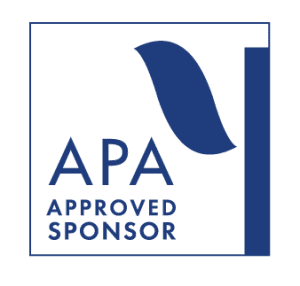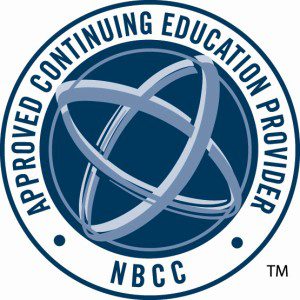When: tbd / 8:30-5:00PM (lunch on your own)
Where: Live Webinar (via Zoom) *Zoom invitation will be sent about a week prior to the training
Continuing Education: 7 CEs Awarded. Partial Attendance is not awarded.
Christie Simons, LPC, LCAS, CAADC
Christie Simons holds her Master’s in Marriage and Family Therapy from Richmont Graduate University and is dually credentialed as a professional counselor and advanced alcohol and drug counselor. Christie was previously the program manager of a medication-assisted opioid addiction treatment center and an adjunct professor of psychology for five years. She’s currently the director of a college counselor and student support center as well as the president of a local non-profit that serves children in foster care and their caretakers. Christie is married and has a sweet five year old daughter (who was adopted through Cherokee County DFCS). She also enjoys cooking, baking, reading, podcasts, and yoga.
Workshop Description:
Substance abuse is a perennial problem, with rates of binge drinking and drug use continuing to climb; but the past several years have seen a new issue, the opioid epidemic. Opioid misuse and overdose, according to the CDC, claims over 90 lives per day, with over half of those being caused by prescription opioid medication. College students are at an increased risk due to their misdirected belief that prescription medications, like Oxycodone and Xanax, are less harmful than other illicit drugs like heroin and cocaine. Research is just beginning to catch up to the dangers of these medications, with the American Medical Association publishing new guidelines for prescribing. In order to best help clients, an understanding of how each substance impacts the brain and body – and interact with one another, as well as an understanding of the epidemiology of substance use and various available treatments is necessary. This presentation aims to give counselors and other helping professionals a foundational understanding of the pharmacology of common drugs of abuse, the scope of the problem, and types of treatments available, including naloxone and other medication-assisted treatment.
Learning Objectives: As a result of this presentation, participants will be able to:
Schedule of the Day
| 8:00 am – 8:30 am | Registration |
| 8:30 am – 10:00 am | Substance Use Disorders: Basics and etiological theories |
| 10:00 am – 10:15 am | Break |
| 10:15 pm – 12:00 pm | Psychopharmacology of common substances
Exercise |
| 12:00 pm – 1:00 pm | Lunch (On Your Own) |
| 1:00 pm – 3:00 pm | Dual Diagnosis, Current Trends, and
Working with the ambivalent client |
| 3:00 pm – 3:15 pm | Break |
| 3:15 pm – 5:00 pm | Focus on Opioid Epidemic
Treatment options: Screening and Referring Medication-assisted treatment |
Instruction Level: Beginner
Target Audience: Psychologists, Clinical Mental Health Counselors, Marriage and Family Therapists, Social Workers, Counseling Graduate Students
Fees: Richmont Students: $120 / Ricmont Alumni: $155 / Professionals/Guests: $170
Questions: For questions about registration or Continuing Education, please contact Martha Busby at mbusby@richmont.edu.
Refunds: Refund requests must be received prior to April 24, 2020 in order to receive a full refund, otherwise there will a $25 late cancellation fee.
There is no known commercial support for this program.
Richmont Graduate University has been approved by NBCC as an Approved Continuing Education Provider, ACEP No. 4534. Programs that do not qualify for NBCC credit are clearly identified. Richmont Graduate University is solely responsible for all aspects of the programs.
Richmont Graduate University is approved by the American Psychologist Association to sponsor continuing education for psychologists. Richmont Graduate University maintains responsibility for this program and its content.


References:
Center for Behavioral Health Statistics and Quality. (2015). Behavioral health trends in the United States: Results from the 2014 national survey on drug use and health (HHS Publication No. SMA 15-4927, NSDUH Series H-50).
Center for Disease Control. (2017, August 30). Understanding the Epidemic. Retrieved from https://www.cdc.gov/drugoverdose/epidemic/index.html.
**Frances, Miller, & Mack. (2005). Clinical textbook of addictive disorders, 3rd ed. New York, NY. Guilford Press.
Johnston, L. D., Miech, R. A., O’Malley, P. M., Bachman, J. G., Schulenberg, J. E., & Patrick, M. E. (2018). Monitoring the Future national survey results on drug use: 1975-2017: Overview, key findings on adolescent drug use. Ann Arbor: Institute for Social Research, The University of Michigan.
Jones, R., Spradlin, A., Robinson, R., & Tragesser, S. (2014). Development and validation of the opioid prescription medication motives questionnaire: A four-factor model of reasons for use. Psychology of Addictive Behaviors, 28(4), 1290-1296.
Krentzman, A. (2013) Review of the application of positive psychology to substance use, addiction, and recovery research. Psychology of Addictive Behaviors, 27 (1), 151 – 165.
Martinez, J. A., Sher, K. J., & Wood, P. K. (2014). Drinking consequences and subsequent drinking in college students over 4 years. Psychology of Addictive Behaviors, 28(4), 1240-1245.
**Thombs & Osborn. (2013). Introduction to Addictive Behaviors, fourth edition. New York, NY. Guilford Press.
U.S. Department of Health and Human Services. (2018, February 12). About the U.S. Opioid Epidemic. Retrieved from https://www.hhs.gov/opioids/about-the-epidemic/index.html#us-epidemic.